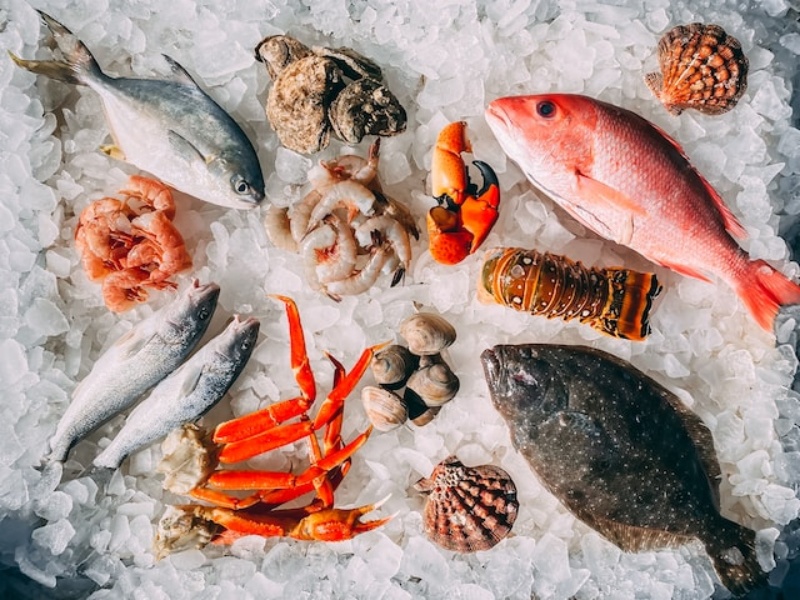Why Seafood Should Be A Staple In Your Diet
Health Benefits of Seafood
1. Rich in Nutrients: Seafood is packed with essential nutrients, including high-quality protein, omega-3 fatty acids, vitamins, and minerals. Omega-3s, found in fatty fish like salmon and mackerel, are known to support heart health, reduce inflammation, and promote brain function.
2. Low in Calories: Many seafood options are low in calories and saturated fat, making them a healthy choice for those looking to maintain or lose weight. Grilled, baked, or steamed seafood can be a satisfying meal without the extra calories found in fried or processed foods.
3. Supports Mental Health: Research suggests that regular consumption of seafood may lower the risk of depression and anxiety. Omega-3 fatty acids have been linked to improved mood and cognitive function, making seafood an excellent choice for mental well-being.

Choosing Sustainable Seafood
1. Opt for Sustainable Sources: When selecting seafood, consider sustainability. Overfishing and environmental concerns can impact marine ecosystems. Look for seafood labeled as sustainable or certified by organizations like the Marine Stewardship Council (MSC) to ensure that your choices support healthy oceans.
2. Explore Local Options: Supporting local fisheries is another way to choose sustainable seafood. Local markets often offer fresher options, and buying from nearby sources can reduce the environmental impact associated with transportation.

Tips for Cooking Seafood
1. Experiment with Cooking Methods: Seafood can be prepared in various ways, including grilling, baking, steaming, or poaching. Each method brings out different flavors and textures, so don’t hesitate to experiment. For instance, grilling shrimp can add a smoky flavor, while poaching fish in broth can keep it moist and tender.
2. Pair with Fresh Ingredients: Enhance the natural flavors of seafood by pairing it with fresh herbs, citrus, and vegetables. Ingredients like garlic, lemon, and dill can elevate your dish while adding nutritional value.
3. Mind the Cooking Time: Seafood cooks quickly, so it’s essential to monitor cooking times to avoid overcooking. Fish is typically done when it flakes easily with a fork, while shellfish should be opaque and firm.
Conclusion
Incorporating seafood into your diet offers a wealth of health benefits while providing delicious and diverse meal options. By choosing sustainable sources and exploring various cooking methods, you can enjoy the flavors of the ocean while supporting your well-being. Make seafood a staple in your meals and discover the positive impact it can have on your health and culinary experience!
